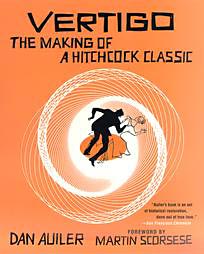| Pronunciation: | | 'vurti`gow
|
 WordNet Dictionary WordNet Dictionary |
| |
| | Definition: | | [n] a reeling sensation; feeling about to fall |
| |
| | Websites: | | |
| |
| | Synonyms: | | dizziness, giddiness, lightheadedness |
| |
| | See Also: | | symptom |
|
 Products Dictionary Products Dictionary |
| |
| | Definition: | |  Vertigo
This title focuses on the production of VERTIGO (1958) as a means of understanding the personality of its inscrutable creator, Alfred Hitchcock. It includes interviews with people involved with the film, analyses of early script drafts, storyboard sketches, and production notes. more details ... |
| |
 Webster's 1913 Dictionary Webster's 1913 Dictionary |
| |
| | Definition: | | \Ver"ti*go\ (?; 277), n.; pl. E. {Vertigoes}, L.
{Vertigines}. [L., fr. vertere to turn. See {Verse}.]
1. (Med.) Dizziness or swimming of the head; an affection of
the head in which objects, though stationary, appear to
move in various directions, and the person affected finds
it difficult to maintain an erect posture; giddiness.
--Quian.
2. (Zo["o]l.) Any one of numerous species of small land
snails belonging to the genus {Vertigo}, having an
elongated or conical spiral shell and usually teeth in the
aperture.
|
| |
 Medical Dictionary Medical Dictionary |
| |
| | Definition: | | Dizziness accompanied by the illusion of motion. |
| |
 Dream Dictionary Dream Dictionary |
| |
| | Definition: | | Dreaming that you have vertigo, symbolizes gloominess and loss in domestic happiness. |
| |
 Biology Dictionary Biology Dictionary |
| |
| | Definition: | | Vertigo is the sensation in which a person feels that he/she is spinning or rotating (or that their surroundings are rotating around them), but the person (and their surroundings) are in fact stationary. Vertigo is often a symptom of inner ear problems that alter a person's sense of equilibrium. |
| |